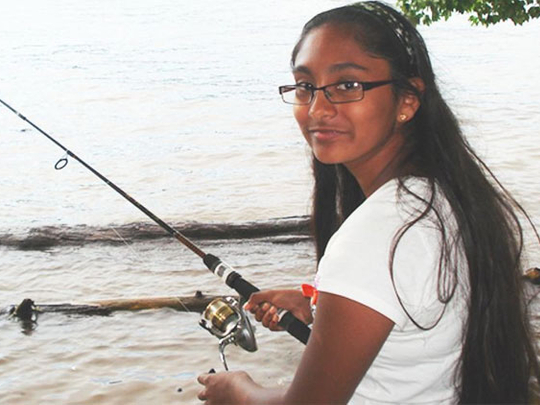
New Delhi: A 13-year-old Indian girl astonished the world after she scored an incredible 162 on a Mensa IQ test in the UK.
The highest score possible for someone under 18 years of age, this led a spokesperson for British Mensa to say, “This puts her within the top 1 per cent of brightest people in the country.”
Experts believe that the achievement means Neha Ramu is in the same league of outstanding minds such as scientist Albert Einstein and physicist Stephen Hawking.
Ramu is now part of the elite group called the Mensa society, an exclusive club for people with high IQs. The IQ test is designed to evaluate a range of abilities to determine the intelligence level of the student.
A seventh grade student in London, Ramu’s Mensa score was the latest in a series of high achieving performances. Crediting her doctor parents, she says: “They find amazing opportunities for me, which allow me to stretch myself and take my knowledge further without stressing myself out.”
For instance, in 2010, Ramu became an online member of Johns Hopkins’ Centre for Talented Youth (CTY), Baltimore.
Earlier this year, she appeared for the standardised test for 17-18 year-olds and came out with a high score of 740/800. She became eligible to be a part of special three-week programme, which provided her an insight into the workings of the nervous system. This, in turn, made her resolve firm to one day become a doctor.
She speaks to Gulf News in an exclusive interview.
GULF NEWS: What kinds of questions were put to you in the Mensa test and which ones were difficult?
NEHA RAMU: They were quite difficult logical questions, which made me doubt whether I would be admitted into Mensa. I did two tests - Culture Fair and Cattell III B. Culture Fair consisted of images, in a sequence or a grid. I had to find the missing picture and a link between the images and finish them. Cattell III B had some puzzles and questions that involved finding the odd or similar ones out.
Do your friends now take it for granted that you are more intelligent than them?
Since this achievement has not changed me in any way and I remain the same fun girl as before, they are not treating me any different. But they do think IQ and academic success are comparable, which is not true.
Have you begun reading more to improve your GK or IQ ever since the win?
I am continuing, as I would do, whether or not I had done the Mensa test. Other than my school homework and John Hopkins, I am not doing anything extra academically. However, even before the test, I usually watched documentaries about things like space and science, in general.
Which subjects do you find quite demanding and wish you could do without?
I struggle with being creative, so the hardest and the most hated subjects for me are music and art.
As a student, which education system do you find better – Indian or English?
I definitely attribute my success to my foundation, which I received in India. Academically, it is well ahead of the year groups in UK. But it is also a bit stressful with loads of homework and exams. I think Indian education should be more practical oriented, stressing on the understanding of the concepts rather than memorising facts.
How was the experience of becoming eligible for the 3-week CTY course in the US and getting an insight into the workings of the nervous system? Were you actually “doing” or “watching” the dissection of body parts – brain and eyes?
I was actually doing it! I dissected the pig’s brain and the cow’s eyes to understand the different parts. It was a new experience and after I got over my initial squeamishness, it was pretty fun! I also made the model of the visual pathway and the nervous system. It was amazing how in a matter of three weeks they could teach so many things in a fun and interesting manner.
It’s inspiring coming from a 12-year-old when you say, “After becoming a doctor, I might consider coming back to India to do medical practice.” Do you really mean it?
Yes, I always love visiting India because it gives me immense happiness being surrounded by all my friends and family. We make it a point to visit India once every year, and each time I am reluctant to come back. Born and brought up in the familiar embrace that is India, my parents also do not intend to settle in the UK, as they don’t truly feel at home here. So, I think eventually I may also settle down in Bangalore to be closer to my family. Also, from my parents, I have learnt that the hospitals in India are just as advanced as any other developed country.
What are your other interests?
I am more of an active person and lack the creativity and daintiness required to create an artistic person. Examples of my sporty behaviour are my fondness for swimming and the fact that I am on the waiting list for the Army Cadet Corps in Kingston. Being a cadet means I will be taking part in adventurous activities like rock climbing, mountain biking, archery and abseiling while learning exciting life skills like field craft, first aid, volunteering and other sports.
• Neha Ramu was born on May 8, 2000, in Bangalore to mother Jayashree and father Ramu Muniraju – both doctors in ophthalmology.
• Moved to the UK and joined Westbourne Primary School in Sutton – 2007.
• She is studying in Grade 7 in Tiffin Girls School, Kingston upon Thames.











